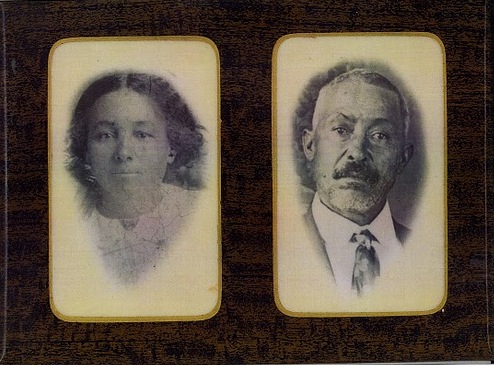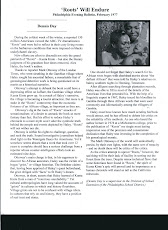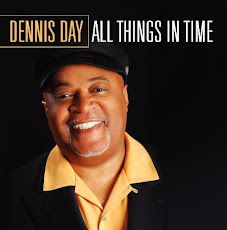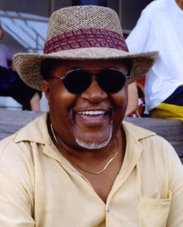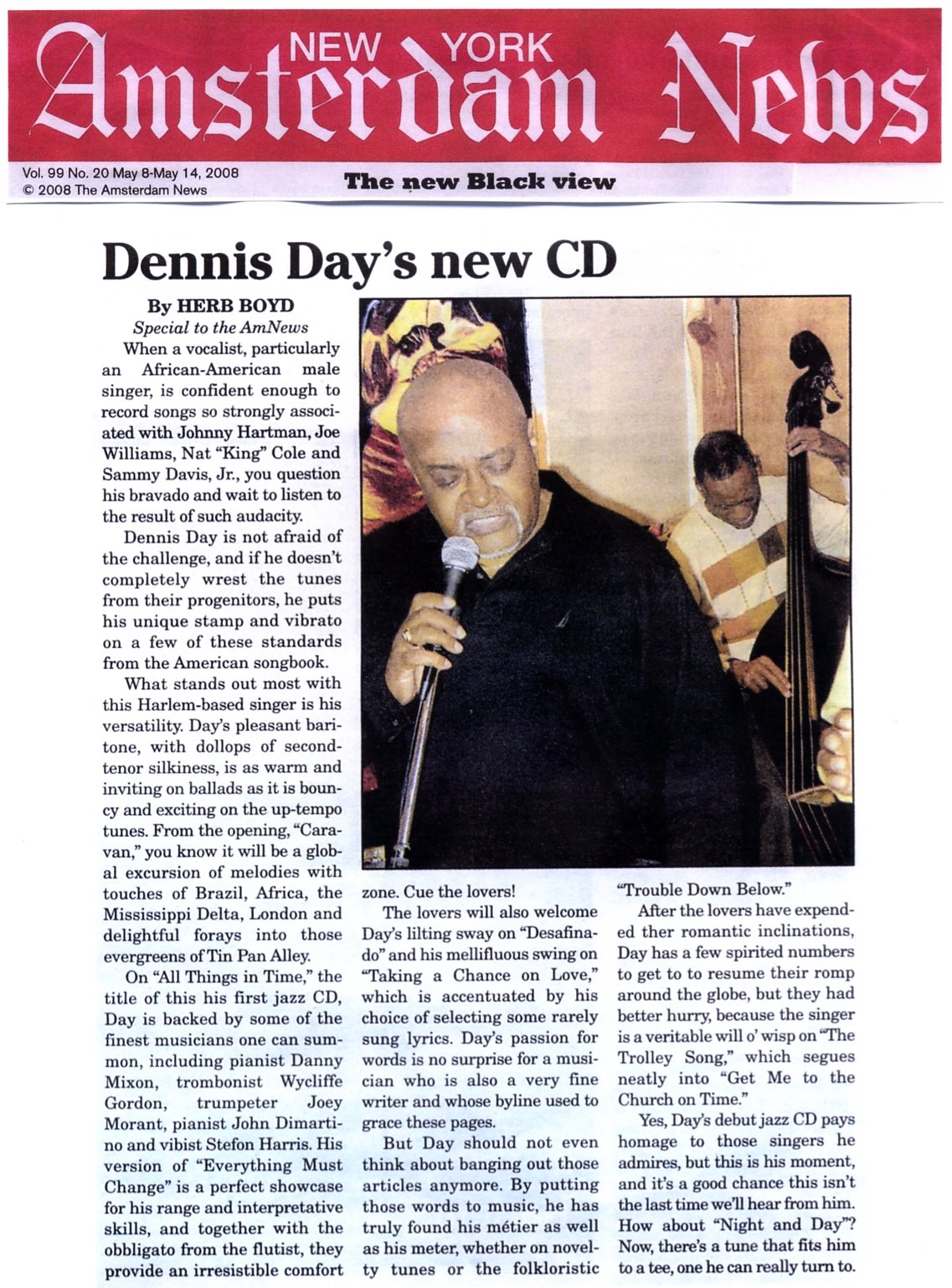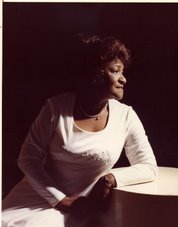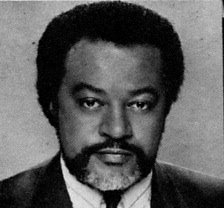Monday, December 28, 2009
My Remembrance of The Honorable Percy E. Sutton
Mr. Sutton loved New York City and embraced Harlem and its residents as though they were family. I live one block from Mr. Sutton's Harlem offices (he also had offices in the city's financial district). I would often see him often along 125th Street, always immaculate, gracious, and never too busy to engage in conversation. For some years I have observed this great man, son of a slave, a Tuskegee Airman, attorney, and successful media mogul who, like the verse in Kipling's sonnet, "walked with kings but never lost the common touch.”
A decade ago when I decided to re-direct my career in pursuit of music and media, I sought Mr. Sutton's wise counsel. He was relaxed and plain spoken with people and he spoke with me as though I were a son. I noticed in that meeting that Mr. Sutton’s loyal staff was loving and protective. He remarked on how important they were to him and pointed out that his right-hand assistant ensured that he was kept abreast of details, correct facts, and even unfamiliar words. He told me, in his sonorous Texans' accent, "young man there's always something to learn, so be sure to surround yourself with people who know as much or more than you do and never stop learning.”
Meeting and greeting my mentor on the street always ensured a good day, touched with inspiration and hope through his smile and kind words of encouragement. The Honorable Percy E. Sutton was ever genteel, poised, and possessed an air of dignity and confidence that never failed to make me proud to be an African American and to have known him. RIP, Mr. Sutton.
Monday, December 14, 2009
Gary Indiana's Native Sons World Icons
Tuesday, November 10, 2009
Alexander Pushkin, Education, and Black History
Obama’s presidency has demonstrated that the "Joshua generation" (today's young people who will carry on the work of social justice and equality of opportunity begun by Civil Rights forbearers) will eagerly identify with successful black political heroes as positive role models apart from sports and entertainment figures. So why not consider a cerebral leap into more scholarly pursuits like English and World Literature, poetry and non-revisionist history to fire the imaginations and dreams of minority youth? Considering the huge appeal of Rap and spoken-word prose prevalent in today’s youth culture, Alexander Pushkin as a literary hero, albeit from an empire once deemed evil by an American president, would seem a natural focal point in the classroom for getting students interested in reading the classics.
Young facile minds in search of meaning typically fashion their heroines and heroes as idealistic, adventurers with single-mindedness of purpose; daring swashbucklers chalking up romantic quests, bristling with charisma. Any popular hero void of swarthy Hollywood stereotypic good looks and sex appeal must compensate by possessing true integrity or a combination of Herculean physical strength and unassailable moral courage and convictions. Hence individuals regarded as heroic can be as diversified by gender, physical qualities, and temperament as Dr. Martin Luther King Jr., Anne Frank, and Abraham Lincoln -- each sharing common traits as central figures of scholastic interest in discussions about what it means to be defined as a hero. Such discussions constitute a typical discourse within many K-through-post-secondary schools.
Alexander Sergeyevich Pushkin is accorded heroic stature in Russian society to this day. He used his writings to explore humanity’s complexities, the beauty of nature, and human relationships, cultivating in Russians a fierce sense of national pride and identity through his works. According to Pushkin scholar Julian Lowenfeld, among Pushkin’s works are “Eugene Onegin, The Bronze Horseman, Ruslan and Lyudmila, Count Nulin and 16 volumes of inspired verse in an astounding array of forms, poetry, prose, fairy tales, histories, criticism, letters.” He is easily among the most revered personalities in all of Russian history. Lowenfeld states, “Pushkin is the fountainhead of Russian literary prose, writers from Gogol, to Dostoyevsky to Tolstoy to Chekhov all accord Pushkin the first and highest place in the great pantheon of Russian prose masters, with his most beloved works being his novel The Captain’s Daughter, and his peerless short stories, including The Queen of Spades, Dubrovsky, and The Tales of Belkin.”
So is it politically naive to ask how American educators can translate Pushkin -- an iconic Russian of undisputed African heritage -- with his prolific writings and colorful escapades, into an engaging, workable curriculum? Would such an effort raise the ire of conservative critics who would find such an innovation unthinkable, perhaps even treasonous, in light of lingering Cold War suspicions? Simply stated, Pushkin was able to convey universal themes and tap into human feelings through his ideas expressed in great prose and poetry. Like Shakespeare, Pushkin wrote fluently about common threads found in today's popular music: love, betrayal, rivalry, jealousy, sexual conquest , greed, and conspicuous consumption.
The Joshua generation of the Obama era, particularly young minority students, is no different from others before or to follow. They want to be led in ways that will empower them to make a difference. Black, Latino, and poor youth especially long to find meaning connected to their own relevant personal narratives and identities. The “Yes I Can"-ness of Obama’s candidacy and his ascendancy to the presidency of the USA challenged for many the notion of the powerless, hopeless "other" and shone a light on the power that ideas, discipline, intellect, and rhetoric can have in attaining personal and political success in America.
The fact that our nation elected as its President a person of African ancestry, one whose physical characteristics and cultural background for many resonate with the familiar, sparked a sense of national pride and heightened self esteem among even the most alienated of minority youth. For a great number of young people, coming of age means identifying with role models and heroes whose appeal is based on external cultural asthetics like looks, athleticism or accepted group norms deemed worthy of emulation.
Whether the hero embraced is President Barack Obama or Alexander Pushkin, the gravitas of
identity formation as a means for motivating young people and developing their positive self esteem should not be under-estimated.
In the July 23rd edition of the Alexander Pushkin Newsletter, Julian Lowenfeld references Pushkin’s pride in his African heritage and writes, “Pushkin inherited his great–grandfather's African features, including thick lips and somewhat frizzy hair and tan colored skin. On his desk he kept an ink well with a statuette of Negroes unloading cotton bales, and joked proudly of being a 'Moor.' The poet’s mother Nadyezhda Osipovna, nee Gannible, was known as 'la belle creole.' Her black grandfather, Ibrahim Gannible had been kidnapped in childhood from central Africa, sold by slave traders to the Turks and then sent as a gift to Tsar Peter The Great. Peter baptized the boy Abraham and raised him fondly and sent him to study military engineering at Vauban’s Academy in France. Abraham became Russia’s chief fortress builder and wrote textbooks in French on military engineering. He rose to the rank of General en Chef of the Imperial Russian Army. Upon retirement the former slave had become a Russian nobleman—owning 800 serfs (white slaves) himself. Proud of his African heritage he chose his last name in honor of the great Cartheginian general Hannibal.”
Pushkin biographers cite over 3,000 musical compositions by over 1,000 composers based on Pushkin’s works, including 41 operas, 19 ballets 20 symphonies and over 2,000 songs set to his lyrics. Pushkin’s voluminous output of works are said to mirror Russia’s soul and helped shape its national character, forging a common national identity among the Russian people. As with any life lived along epic proportions, Pushkin’s saga and generational influence are near mythical. The poet’s mystique is part of Russian folk lore and his enduring popularity is evident in Russian culture to this day.
What are some of the events that led to this impassioned, nearly religious zeal for Pushkin's talents? Lowenfeld seems to suggest a keen intellect, soaring rise to fame, passionate love trysts, multiple exiles , house arrests, censorship, espionage, and restrictions and hostility from imperial authorities and society alike. His keen wit and sense of integrity led him into at least twenty duels, the last fatal, when he was slain protecting his wife’s honor.
Perhaps Pushkin’s life story and impact alludes any American interpretation as hero,he is after all a foreigner. And as a nation, we are engaged in an ever evolving social experiment that challenges and expands our own national and cultural identity.Issues such as levels of immigration,bi-lingual education shifting demographic patterns and conservatives' anxieties around the loss of the elusive American character remain contentious. But since reading is so fundamental to developing self-esteem and competence, there must be some literary benefit to igniting the interest of so-called “at risk" youth who need every reason and encouragement to bolster healthy self esteem undaunted by gangs and violence. Many of these youth can be reached through role models, some through reading and media. Aspects of the life and works of Alexander Pushkin, can serve as an effective catalyst for studying classical literature and competing political ideologies without need of fearing a loss of the deep allegiance African American youth have for their American homeland.They can achieve academic success.Yes they can!
.
Sunday, November 1, 2009
The Old Regal Theater Chi Town's Gem
Wednesday, October 28, 2009
MJ:This Is It and How it Was
documentary, I pondered MJ and family’s incredulous journey, from his humble beginnings in my old stompin' grounds to the pinnacle of fame, wealth and celebrity. Many in the jazz community and those plugged in to major social media sites such as Face book and My Space are familiar with my early affiliation with Steel town Records. My group, the Valiants were among the roster of artists on the short lived label credited with having recorded the groups' first moderately successful tune Big Boy. What is remarkable is the support network of my friends and associates whom were there to help the J5 sensing something great on the horizon was unfolding, most simply wishing to help out. Now many opportunists are seeking a stake in the Jackson enterprise that could yield big dividends for years to come. Music historians, collectors, curators, wealthy conosuiers, and producers are vying for connections with authentic memorabilia as pop culture writers attempt to sort fact from fiction.In The Chicago Reader article, entitled The Find, writer Jake Austen attempts to sort out the Jacksons early recording history.Thus far most Michael Jackson autobiographical books and movies depicting their early recording years are frought with distortions,blatant misrepresentations and right out lies. My group The Valiants are not directly mentioned in this lengthy Chicago Reader article,however, my role and the group are referenced in Bob Abrahamian’s interview with Delroy Bridgeman on WHPK 88.5 FM Chicago based radio show "Sitting in the Park". Several members of the Valiants are referred to, they include the late, Solomon Ard, Ludie Washington, singer turned actor seen in Hollywood Schuffle, Jo Jo Dancer, UHF, he was a co-founder of Steeltown Records(deceased)and Delroy Bridgeman. These lifelong friends were my former singing mates during Steeltown Record’s beginnings, and they were of immense help to Joe Jackson and the boys. When I left for Nashville to attend college, members of the group lent their more mature voices to the J5's first soundtrack success Big Boy by augmenting the adolescents’ youthful vocals with a somewhat more robust vocal background. They escorted and drove the brothers to their after school rehearsals when Joe Jackson worked evening or night shifts at Inland Steel in East Chicago; fetched sandwiches for a weary young nine year old Michael during long recording sessions. These deeds were rarely boasted about over the years, it was simply what one did in that era to help one another get to the next level. My remembrances of the stories shared of a working class family's struggle to attain musical super success , makes the very surreal Hollywood premier seem real when I think back on those days.Then we knew the meaning of the African proverb, “It Takes A Village.” These are some of the shoulders upon which the J5 stood during the lean and mean years far away from the glitter of a Hollywood blockbuster premier.I plan to see This is It but I'll always remember how it was as well.
Friday, October 9, 2009
Dancing to the Obama Shuffle
Joy was short-lived however. By the time TV news pundits got into full throttle around 8:00 a.m., conservative media network Fox News had made the president seem more like a suspect than a celebrant. Fox broadcasters were weirdly dismissive of the prestigious award, with one talking suit chiming, “He, (Obama) ought to share half the prize with President Bush. Well, go figure! Not one congrats came from the political Right or Republicans. RNC Chair Michael Steele's statement detracted from the greater global and moral significance of securing world peace, which is being spearheaded by Mr. Obama in his shepherding of the United Nations Security Council resolutions and US/Russian agreements reducing nuclear war heads, and in forging a consensus among Western powers on nonnuclear proliferation. Instead, the radical right is stirring the regional fringe base, highlighting the nation’s bleak unemployment rate and a perceived lack of concrete accomplishment by Obama since he took office nine months ago.
This is ludicrous ''stinkin' thinkin'" in the scheme of attaining world peace. The Nobel Prize is in part awarded for consensus building and creating a climate around the pursuit of peace – fetes which Obama has and continues to perform. President, Obama's rhetoric and actions have recast the United States as a conciliator willing to engage diplomacy and nation building over coercion and militarism. These initiatives, despite a global economic downturn, create a sense of global hope and optimism for a world at peace, which the Committee on the Nobel Peace Prize did not choose to ignore. Obama has used his bully pulpit as leader of the free world to usher us into an era of reduced nuclear threat and conflict resolution through negotiation and mediation. For this reason alone I believe our President deserves the 2009 Nobel Peace Prize.
Failure to accept the good will Obama has generated for enhancing world peace, ensuring a climate for muti-lateral solutions to end world conflicts, and urging a robust diplomacy within the United Nations Security Council’s fledgling process – even delimiting the full deployment of missile defense systems in Eastern Europe, thereby reducing stockpiles of weapons of mass destruction – suggests that neoconservatives, hawks, and Obama naysayers are unable to see the forest for the trees. Their criticism of the Committee’s choice fails to take into account these accomplishments that could have long term impact on a sustainable peace.
As the late Speaker of the House Senator Tip O’Neal stated, “All politics is local.” President Obama has his work cut out at home. Indeed, if he fails to deliver on major challenges, like health care, unemployment, and honorably ending wars in Iraq and Afghanistan, then building a global consensus that peace, not war, is the answer won’t be enough to appease the home front. But until he does deliver the local goods, both John Lennon from the grave and I from my Harlem apartment will dance this day because all we are saying is “Give Peace a Chance,” Congratulations, Mr. President, and keep on truckin' !
Friday, July 10, 2009
Review: Dennis Day All Things in Time
By Cathy Gruenfelder
All Things In Time may be Dennis Day’s first jazz album, but it is the work of a veteran singer who has paid plenty of dues and has already found a high level of success in other markets. He recorded with Steeltown Records as lead singer of the Valients, the label that first recorded the Jackson Five, and he also was a featured vocalist with The Jades, in which he recorded “My Loss, Your Gain” for Decca Records. He currently leads jazz groups in New York City, and was recently selected as one of six singers to lead the Jazz Vocalist Workshops at the famous Blue note Jazz Club.
As soon as I pressed play I was struck by a feeling that to me is the characteristic reaction to a real jazz singer – that feeling is a sort of joyful anticipation of surprises that you know will be at every turn, and it is also due to a connection with authenticity. Dennis Day is wholeheartedly Dennis Day – he lets go, and sings in the moment. His sense of phrasing is in no way outlined before the song begins. He is as unaware of how he may phrase it as I am – at least that’s the impression that I get as a listener, and it is a very important impression to get!
Also impressive is his ability to go from deep brooding ballads to joyful flamboyant up-tempo numbers, pulling off each tune as effectively as the next. Ballads include “Everything Must Change,”
“You Are Too Beautiful,” and “Who Can I Turn To?” Another element of his style is more exotic and adventurous deliveries, exemplified on tunes like “Caravan,” and his original composition “African
Musings,” on which he provides some tribal and animalistic vocal effects.
Day’s tone, as perfectly described in the liner notes by Herb Boyd, is “a pleasant baritone, with dollops of second-tenor silkiness.” Day doesn’t take himself too seriously, and as a result, you can hear in his voice how good he feels when he is singing – even when he is expressing sadness – you can feel the catharsis that takes place for him. All Things In Time is quite the debut record from this authentic jazz crooner. There’s also one more not so minor detail – the band is killing!
All THINGS IN TIME-D-Day Media Group
Web: www.ddaymedia.com.
1. Caravan; 2. African Musing; 3. Sister Sadie; 4. Everything Must Change; 5. Trouble Down Here Below; 6. You Are Too Beautiful; 7. Taking a Chance On Love; 8. Hallelujah, I Love Her So!; 9. Desifinado; 10. The Trolley Song/Get Me To The Church OnTime; 11. Blues Medley; 12. Who Can I Turn To?
PERSONNEL: Dennis Day, vocals; Danny Mixon, piano (tracks 2, 4, 5, 9, 10, 11); John DiMartino, piano (tracks 1, 7, 12); John Miller, piano (tracks 3, 6, 8); Lisle Atkinson, bass (tracks 1, 2, 4, 5, 7, 9, 10, 11, 12); Eric Lemon, bass (tracks 3, 8); Earl Grice, drums (tracks 1 – 12); Willie Martinez, percussion (tracks 2, 9); Stefon Harris, marimbas (track 2); Jason Curry, alto sax (tracks 3, 6, 8); Cleave Guyton, flute (track 4), alto sax (track 11); James Zollar, trumpet (tracks 10, 11); Joey Morant, trumpet (tracks 3, 8); Melvin Sparks, guitar (track 5); Wycliffe Gordon, trombone (track 3)
Saturday, June 6, 2009
Obama - A Picture is Worth a Thousand Words
With cameras rolling at the ancient Great Pyramid of Giza in Egypt, the American president once again seized a teachable moment, embodying the adage “a picture is worth a thousand words.”
“That looks like me!” the president quipped. “Look at those ears.” Cameras zoomed in to show a hieroglyphic head with prominent protruding ears similar to caricatures of Obama seen increasingly in publications and identified in pop culture with MAD magazine’s Alfred E. Newman. The seemingly light-hearted remark by the youthful president was chalked up by most mainstream reporters as presidential levity, tempered with a bit of earthy humility expressed through self-deprecating humor – personal qualities many voters find appealing and even admire in powerful leaders.
A picture being worth a thousand words, the image Obama pointed to in this instance turns out to be a representation of a god's face on the tomb of Kar, an Egyptian nobleman who served as a priest, scholar, and judge. The camera’s lighting aesthetic, even with a slight shadow, glaringly outlines the image’s prominent Negroid features; the full lips and broad noses phenotypical of Nubians during Egypt’s Dynastic eras. The Kar hieroglyphic bears strong resemblance to Nubian and Negroid phenotypes that populated the fertile Nile Valley in 2,500 BC and suggests the centrality of the African presence from antiquity and lineage to Egyptian modernity.
Mr. Obama only chose to highlight the more sanguine, apolitical physical similarity – the ears. President Obama knows all too well that television images in today's cyber age will have a viral impact via the Internet and an picture indeed is worth a thousand words. [See link to the video “Obama Visits Pyramid” at left.]
Just as race relations have historically been the Achilles heel among American politicians, requiring adroit maneuvering around potentially inflammatory issues, any flirtation with Western historical revisionism could be equally troublesome for America’s first African American president. Right-wing drones like Limbaugh, O’Reilly, and Hannity will no doubt misread Obama’s nuance. As a throwback to pre-inaugural conservative allegations of so called Obamian elitism, they may decipher Obama’s wit as an attempt to identify himself with Egyptian royalty and fail to see the larger picture. We now have a president who is not only capable of making history but whose execution and grasp of big ideas may even aid us by informing history, challenging revisionist fallacies that would deny, distort, and malign the monumental and lasting achievements of people of African descent.
Saturday, February 21, 2009
Slippery Slope for NY Post
A Message to You
from D-Day Media
Dear Friends,
One need only look at the German press and its complicity during the unfortunate Nazi reign of terror in German history to understand the depth of outrage over using a primate as an ideological stand-in for our president, Barrack Obama.
During pre-war Germany's era of rising inflation, recession, and soaring unemployment Goebbels’ propaganda machine used the press as a tool, caricaturing Jews as sub-human, thus setting the stage for the slippery slope that led to the extermination of six million Jews. We can ill afford to ignore The Post's cavalier response to a serious breach of journalistic ethics and fairness. Editors McManus, Allan, and cartoonist Delonas must go immediately! Moreover, The Post must issue a public apology to its readers and to the citizens of our great nation.
To add your voice to the growing wave of protest against the New York Post go to
http://colorofchange.org/nypost/?id=2472-122858
Cordially,
Dennis Day
President/CEO,
D-Day Media Group Inc.
www.ddaymedia.com
www.myspace.com/dennisdaymusic
